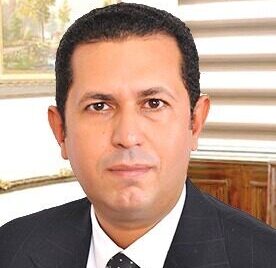The world is changing quickly, with economics and politics becoming two faces of the same coin.
Economics is even becoming a pillar of the formulation of political strategies. It is in fact becoming central to the status of states on the international stage.
This is why some states, such as China, can reshape the global order, thanks to their economic weight.
In doing this, these states create a multilateral system, away from unilateral hegemony.
Egypt, for its part, strives to use investments as a diplomatic tool, in what one can term as ‘investment diplomacy’.
This diplomacy seeks to transcend traditional practices on the road to becoming a basis for relations with fellow states on the African continent.
The US has long been a model of economic diplomacy, particularly given its post-World War II reconstruction and economic support policies.
However, the traditional vision of investment diplomacy, which relied on the direct injection of money or bringing products to the American market, has recently shifted to a ‘give and take’ formula. This formula is having a strong toll on relations between the US and its allies.
This change is partly attributed to the volatility of the international situation and the rise of trade barriers. These barriers have prompted some countries to look for effective alternatives.
Egypt adopts, however, an innovative vision for investment diplomacy, focusing on exporting expertise and providing technical support to its brotherly African countries.
This approach clearly reflects Cairo’s quest to form real partnerships with African countries by providing the technical support and expertise necessary to implement development projects.
A prominent example of this approach is the Julius Nyerere Dam in Tanzania where Egypt shared its expertise in building this vital project that enhances Tanzania’s ability to benefit from its water resources.
This model reflects how investment diplomacy can contribute to achieving sustainable development through effective co-operation and real partnerships.
Egypt seeks, via its new investment diplomacy, to present itself as a reliable partner that supports regional development, rather than seek to impose hegemony.
This contrasts with the policies of some countries that aim to distort Egypt’s image to achieve political gains at the expense of development rights in the region.
By sharing its development projects with neighbouring African countries, Egypt shows its commitment to sustainable development that transcends national borders.
Egypt’s investment diplomacy, which relies mainly on regional co-operation as a tool to promote sustainable development, reflects deep understanding of relations between economics and politics.
Through this new strategy, Egypt sets an example of how economic power can be used to support political goals, build regional relations, and correct misperceptions disseminated by some countries.
Mohamed Fahmy is the editor-in-chief of The Egyptian Gazette and Egyptian Mail newspapers






Discussion about this post